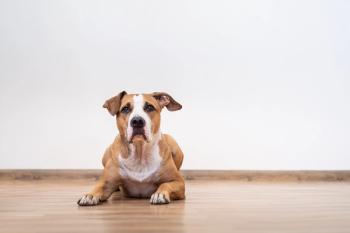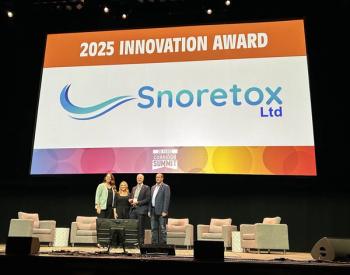
Diagnosing and treating chronic nasal disease (Proceedings)
"Allergic" rhinitis is a difficult and frustrating clinical condition in cats. Because of the relatively young age at which many cats are afflicted, we assume that Feline Herpes Virus –1 (FHV-1) is part of the pathophysiology.
"Allergic" rhinitis is a difficult and frustrating clinical condition in cats. Because of the relatively young age at which many cats are afflicted, we assume that Feline Herpes Virus –1 (FHV-1) is part of the pathophysiology. A thorough workup includes nasal radiographs, endoscopic evaluation of the caudal nasopharynx and right/left nasal cavities, appropriate biopsies, and an aggressive nasal flush. Typical microscopic findings include; "Rhinitis, lymphoplasmacytic, neutrophilic, segmental, moderate to severe, with turbinate remodeling and multi-focal intra-epithelial intranuclear eosinophilic inclusions". Our therapeutic strategy is to clear the opportunistic bacterial infection, evaluate the efficacy of corticosteroids, and facilitate patient comfort with nasal decongestants. Once you have turbinate destruction / remodeling and denuding of the epithelium, it becomes a disorder we can only hope to manage, but never cure.
The following protocol is meant as a guideline, not as a definitive treatment for every patient.
1. Antibiotics: A 3-6 week course of enrofloxacin and clindamycin to clear up bacterial infection. If patient has been on multiple antibiotics previously, marbofloxacin is recommended for resistant pseudomonads in place of the enrofloxacin.*
2. Corticosteroids: Once the nasal discharge is clear or serous in nature (vs. mucopurulent), a 5-day trial of prednisilone @ 5 mg/cat po bid is recommended. If the clinical signs are steroid-responsive, then Flovent therapy bid is recommended for chronic management.
3. Inhaled steroid: Flovent (fluticasone) is the inhaled steroid of choice because of its potency, duration of action, and molecular size which limits systemic absorption. The standard starting dose of flovent is 110 mcg, one puff BID. More specific directions for use of flovent are including in these proceedings under the banner of "feline asthma"
4. Decongestants: "Little Noses" nasal decongestant drops are rotated on a 3-day cycle with saline drops (i.e. 3 days decongestant then 3 days saline). This facilitates drainage from the sinuses, resulting in greater patient comfort. When administering the decongestant, the patient's nose is pointed up and one drop is given in each nostril. The saline drops would be rotated to prevent a significant "rebound effect" of nasal congestion. If "little noses" is not available, you can use other commercial nasal decongestants (afrin or Dristan) diluted 1:4 with saline.
* In patients with severe turbinate destruction, chronic antibiotic therapy may be needed to adequately manage the patient. A suggested regime would include marbofloxacin, azithromycin and minocycline, for weeks 1, 2 and 3 followed by a rest week. This cycle is repeated on a monthly basis.
Newsletter
From exam room tips to practice management insights, get trusted veterinary news delivered straight to your inbox—subscribe to dvm360.




